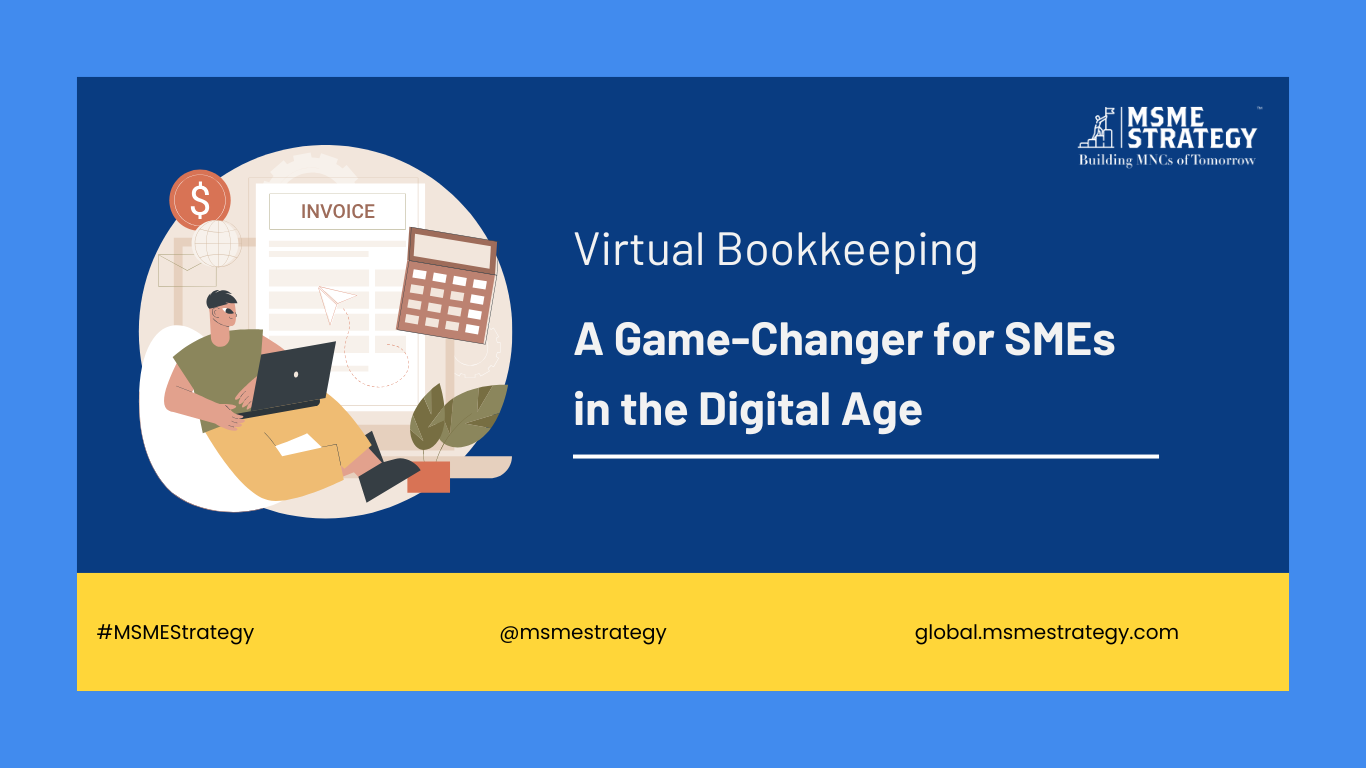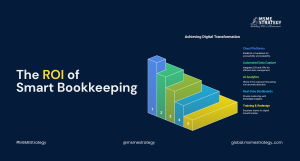Is Your SME Struggling with Financial Management?
Small and medium enterprises (SMEs) worldwide, particularly in India, often face significant challenges when managing their finances. Are you experiencing any of the following?
- Struggling with cash flow mismanagement and lack of real-time financial insights?
- Finding traditional bookkeeping costly and time-consuming?
- Facing compliance risks due to manual errors and outdated accounting practices?
- Overwhelmed with financial paperwork, making it hard to focus on business growth?
If these challenges sound familiar, it’s time to explore virtual bookkeeping—a modern, efficient, and cost-effective solution for SMEs worldwide.
What is Virtual Bookkeeping?
Virtual bookkeeping refers to the practice of managing a company’s financial records remotely using cloud-based accounting software and digital tools. Unlike traditional bookkeeping, which requires in-house accountants or outsourced agencies working physically with paperwork, virtual bookkeeping is fully online, automated, and accessible in real time.
Why is Virtual Bookkeeping Relevant for SMEs?
- Cost-Effective: Eliminates the need for full-time, in-house bookkeepers, reducing payroll expenses.
- 24/7 Accessibility: Financial data is available anytime, anywhere, ensuring better decision-making.
- Scalability: Suitable for businesses of all sizes, allowing for easy expansion.
- Compliance & Accuracy: Automated record-keeping reduces human errors and ensures tax compliance.
- Integration with Virtual CFO Services: Virtual bookkeeping works seamlessly with Virtual CFO solutions, offering strategic financial insights.
Latest Trends in Virtual Bookkeeping & Financial Management
The global shift toward digital financial services is transforming bookkeeping. Here are some of the latest trends that SMEs should consider:
1. AI-Powered Bookkeeping
Artificial Intelligence (AI) is revolutionizing accounting with automation, predictive analytics, and fraud detection. AI-driven tools can categorize transactions, generate financial reports, and provide cash flow forecasts without manual intervention.
2. Cloud-Based Accounting Solutions
Cloud bookkeeping platforms like QuickBooks, Xero, and Zoho Books are widely adopted by SMEs. They offer:
- Real-time collaboration with accountants and financial advisors.
- Secure data storage and automatic backups.
- Seamless integration with other business software (e.g., CRM, payroll, invoicing tools).
3. Blockchain for Transparent Bookkeeping
Blockchain technology enhances security and transparency in financial transactions, making record-keeping tamper-proof and highly reliable.
4. Mobile-First Bookkeeping Solutions
With the increasing reliance on mobile apps, bookkeeping platforms now offer on-the-go financial tracking, receipt scanning, and instant invoice generation, helping business owners stay updated anytime.
5. Virtual CFO Services for SMEs
Virtual CFOs provide strategic financial planning and advisory support without the cost of a full-time CFO. SMEs can combine virtual bookkeeping with Virtual CFO services to get expert financial guidance and insights tailored to their growth strategy.
How SMEs Can Implement Virtual Bookkeeping Effectively
Step 1: Choose the Right Virtual Bookkeeping Solution
- Identify your business needs (e.g., invoicing, tax compliance, payroll management).
- Compare cloud-based accounting software based on features, pricing, and scalability.
Step 2: Ensure Data Security & Compliance
- Use platforms with end-to-end encryption and multi-factor authentication.
- Stay updated with tax regulations and financial compliance requirements.
Step 3: Automate & Integrate Financial Processes
- Automate routine bookkeeping tasks to minimize errors and save time.
- Integrate virtual bookkeeping software with banking, payroll, and CRM tools for streamlined financial management.
Step 4: Work with Expert Financial Consultants
Partnering with professionals like MSME Strategy Consultants can help SMEs optimize their financial processes, stay compliant, and make data-driven business decisions.
The Future of SME Financial Management
Virtual bookkeeping is no longer an option but a necessity for SMEs aiming for sustainable growth and financial efficiency. By embracing digital financial solutions, small businesses can cut costs, improve accuracy, and gain real-time financial insights, allowing them to focus on expansion and profitability.
Ready to streamline your financial management? Get expert guidance from MSME Strategy Consultants (global.msmestrategy.com) to implement the best virtual bookkeeping solutions tailored to your business needs.
#MSMEStrategy #VirtualBookkeeping #SMEFinance #DigitalAccounting #CloudBookkeeping #AIinFinance #FinancialManagementForSMEs






